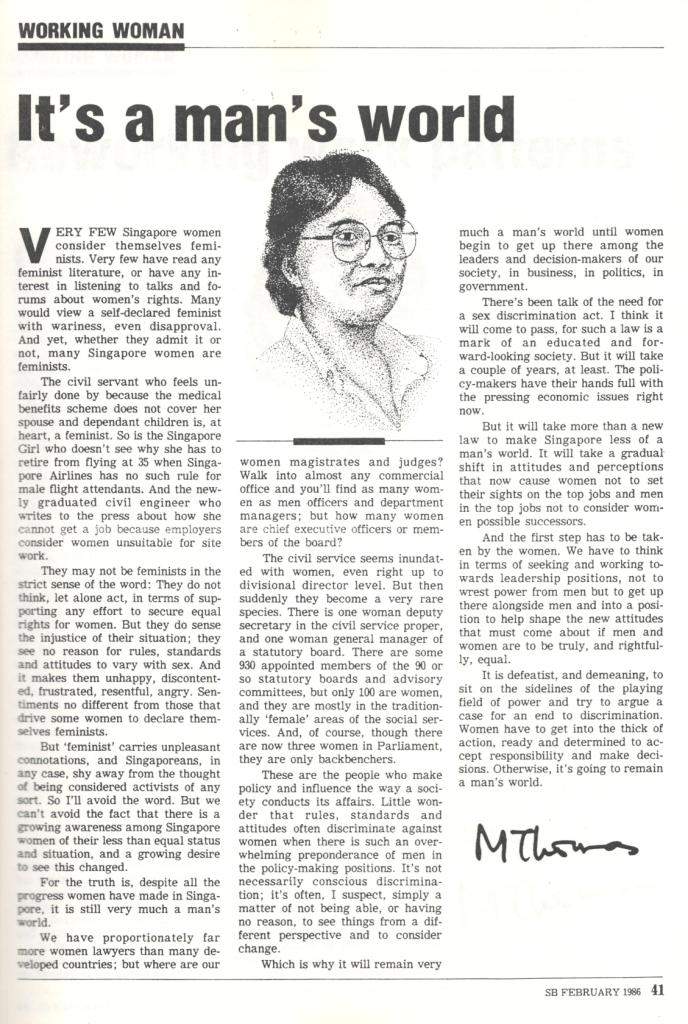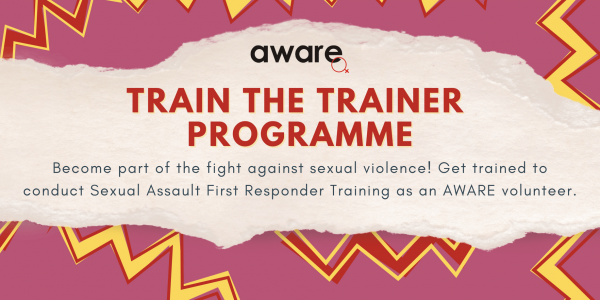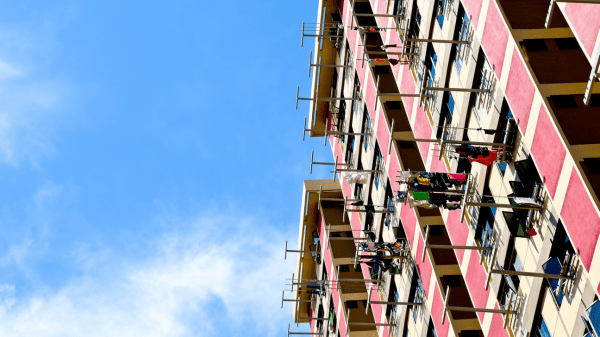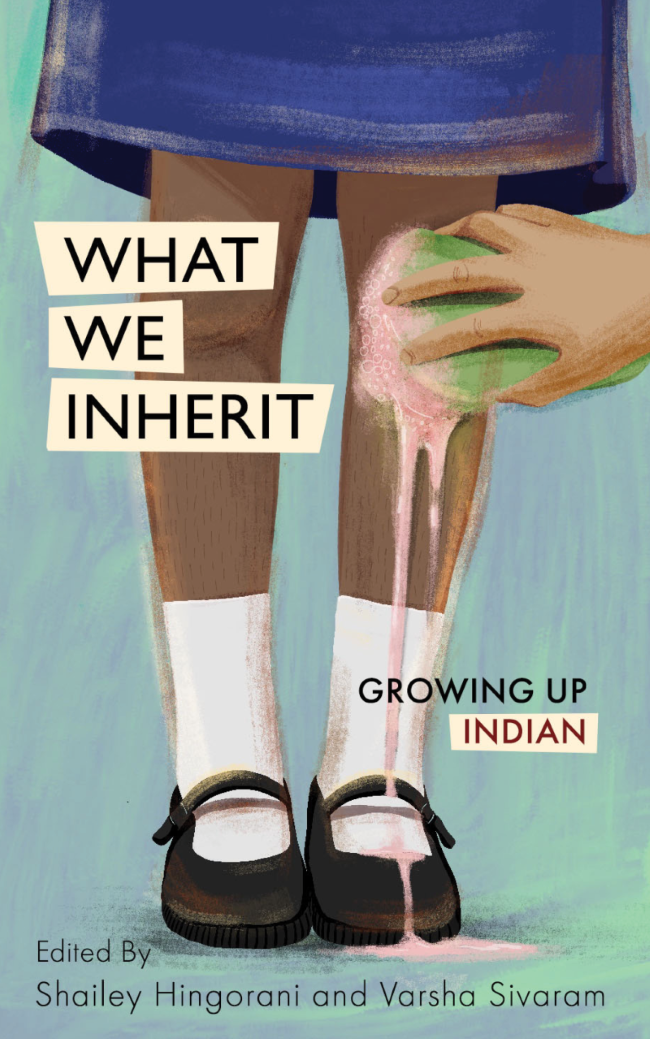On 10 June 2022, the Singapore Press Club Awards honoured AWARE founding member and veteran journalist Margaret Thomas, inducting her into the Singapore Media Industry Hall of Fame as part of its inaugural batch.
To celebrate Margie’s latest accolade, here’s a throwback to February 1986, when she launched a column, “Working Woman”, in the (now defunct) magazine Singapore Business. This is the very first entry in that series, titled “It’s a man’s world”. At the time, AWARE was a fledgling volunteer organisation—it had been registered just three months prior, in November 1985, and would only be officially launched to the public a month later in March of 1986. Nevertheless, the SB editors knew of Margie’s feminist convictions and invited her to pen the monthly column.
Almost four decades later, Margie finds that the piece still resonates. The desire to galvanise women into putting language to their own experiences, and participating more actively in civil society, rings true—even though “that last point, about why women need to get into the thick of things—I would not phrase it quite that way today.” Gratifyingly, she notes that “more women and men these days are quite happy to call themselves feminists and activists”.
This article was first printed in the February 1986 issue of Singapore Business.

Very few Singapore women consider themselves feminists. Very few have read any feminist literature, or have any interest in listening to talks and forums about women’s rights. Many would view a self-declared feminist with wariness, even disapproval. And yet, whether they admit it or not, many Singapore women are feminists.
The civil servant who feels unfairly done by because the medical benefits scheme does not cover her spouse and dependent children is, at heart, a feminist. So is the Singapore Girl who doesn’t see why she has to retire from flying at 35 when Singapore Airlines has no such rule for male flight attendants. And the newly graduated civil engineer who writes to the press about how she cannot get a job because employers consider women unsuitable for site work.
They may not be feminists in the strict sense of the word: They do not think, let alone act, in terms of supporting any effort to secure equal rights for women, but they do sense the injustice of their situation; they see no reason for rules, standards and attitudes to vary with sex. And it makes them unhappy, discontented, frustrated, resentful, angry. Sentiments no different from those that drive some women to declare themselves feminists.
But ‘feminists’ carries unpleasant connotations, and Singaporeans, in any case, shy away from the thought of being considered activists of any sort. So I’ll avoid the word. But we can’t avoid the fact that there is a growing awareness among Singapore women of their less than equal status and situation, and a growing desire to see this changed.
For the truth is, despite all the progress women have made in Singapore, it is still very much a man’s world.
We have proportionately far more women lawyers than many developed countries; but where are our women magistrates and judges? Walk into almost any commercial office and you’ll find as many women as men officers and department managers; but how many women are chief executive offices or members of the board?
The civil service seems inundated with women, even right up to divisional director level. But then suddenly they become a very rare species. There is one woman deputy secretary in the civil service proper, and one woman general manager of a statutory board. There are some 930 appointed members of the 90 or so statutory boards and advisory committees, but only 100 are women, and they are mostly in the traditionally ‘female’ areas of the social services. And, of course, though there are now three women in Parliament, they are only backbenchers.
These are the people who make policy and influence the way a society conducts its affairs. Little wonder that rules, standards and attitudes often discriminate against women when there is such an overwhelming preponderance of men in the policy-making positions. It’s not necessarily conscious discrimination; it’s often, I suspect, simply a matter of not being able, or having no reason, to see things from a different perspective and to consider change.
Which is why it will remain very much a man’s world until women begin to get up there among the leaders and decision-makers of our society, in business, in politics, in government.
There’s been talk of the need for a sex discrimination act. I think it will come to pass, for such a law is a mark of an educated and forward-looking society. But it will take a couple of years, at least. The policy-makers have their hands full with the pressing economic issues right now.
But it will take more than a new law to make Singapore less of a man’s world. It will take a gradual shift in attitudes and perceptions that now cause women to not set their sights on the top jobs and men in the top jobs not to consider women possible successors.
And the first step has to be taken by women. We have to think in terms of seeking and working towards leadership positions, not to wrest power from men but to get up there alongside men and into a position to help shape the new attitudes that must come about if men and women are to be truly, and rightfully, equal.
It is defeatist, and demeaning, to sit on the sidelines of the playing field of power and try to argue a case for an end to discrimination. Women have to get into the thick of action, ready and determined to accept responsibility and make decisions. Otherwise, it’s going to remain a man’s world.
Margaret Thomas









